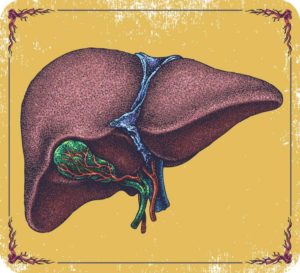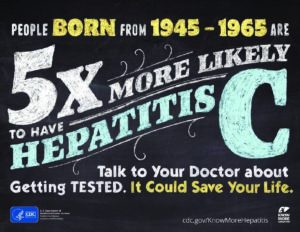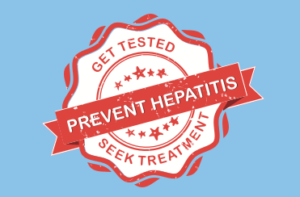
What is hepatitis?
Hepatitis is an inflammation of the liver that has many causes. The liver is located in the upper right side of your stomach area. It does many things, such as break down food, clean blood, and fight infections. You cannot live without a working liver.
Hepatitis is often caused by an infection with a virus. There are three main types of hepatitis viruses: A, B, and C. Of these, hepatitis C (HCV) is the most common. In fact, in the U.S., HCV is the most common infection that is spread by blood in the U.S.

What is hepatitis C?
Hepatitis C virus (HCV) is the most common cause of hepatitis, affecting millions in the U.S. The infection is spread by blood-to-blood contact such as needles. People often go years without knowing they are infected because HCV does not have clear symptoms. After a while, HCV can cause liver damage or even cancer. Unlike hepatitis A and B, there is NO vaccine for HCV but it can be cured.

How many people have HCV?
In the U.S., about 5 million people have had HCV infection. In about one of three, the infection has gone away without treatment. But about 400,000 Texans and 2.5 million people in the U.S. still have the virus in their blood (chronic HCV).
Up to three quarters (75%) of the people with chronic HCV do not know they have the disease, partly because they show no or few symptoms.

Image: Centers for Disease Control
Who has HCV?
Most people with HCV infection were born between 1945 and 1965 (“baby boomers”). The risk is also higher for people who:
- Have used injection drugs at any time
- Have abnormal liver tests
- Have been exposed to a person who has HCV
- Have had a needle-stick injury at work
- Received a blood transfusion before 1992
- Were born to a mother with HCV
Experts recommend that people in these risk groups and all baby boomers be screened for HCV. Make sure to ask your doctor for the test. For many people, HCV is not included in routine testing.
Ask your primary care doctor about HCV screening!

The good news!
Although there is no vaccine to prevent HCV, there are many effective medications can cure it. Treatments typically take 8-12 weeks and have few side effects. If you or someone you know has chronic HCV, talk to your doctor or health care professional today about getting treated. If you do not have insurance, you may still be able to be treated!
If you or a loved one has been diagnosed with HCV, there is hope. Talk to your doctor about getting treated and learn about how you can live a healthier life with liver disease.
